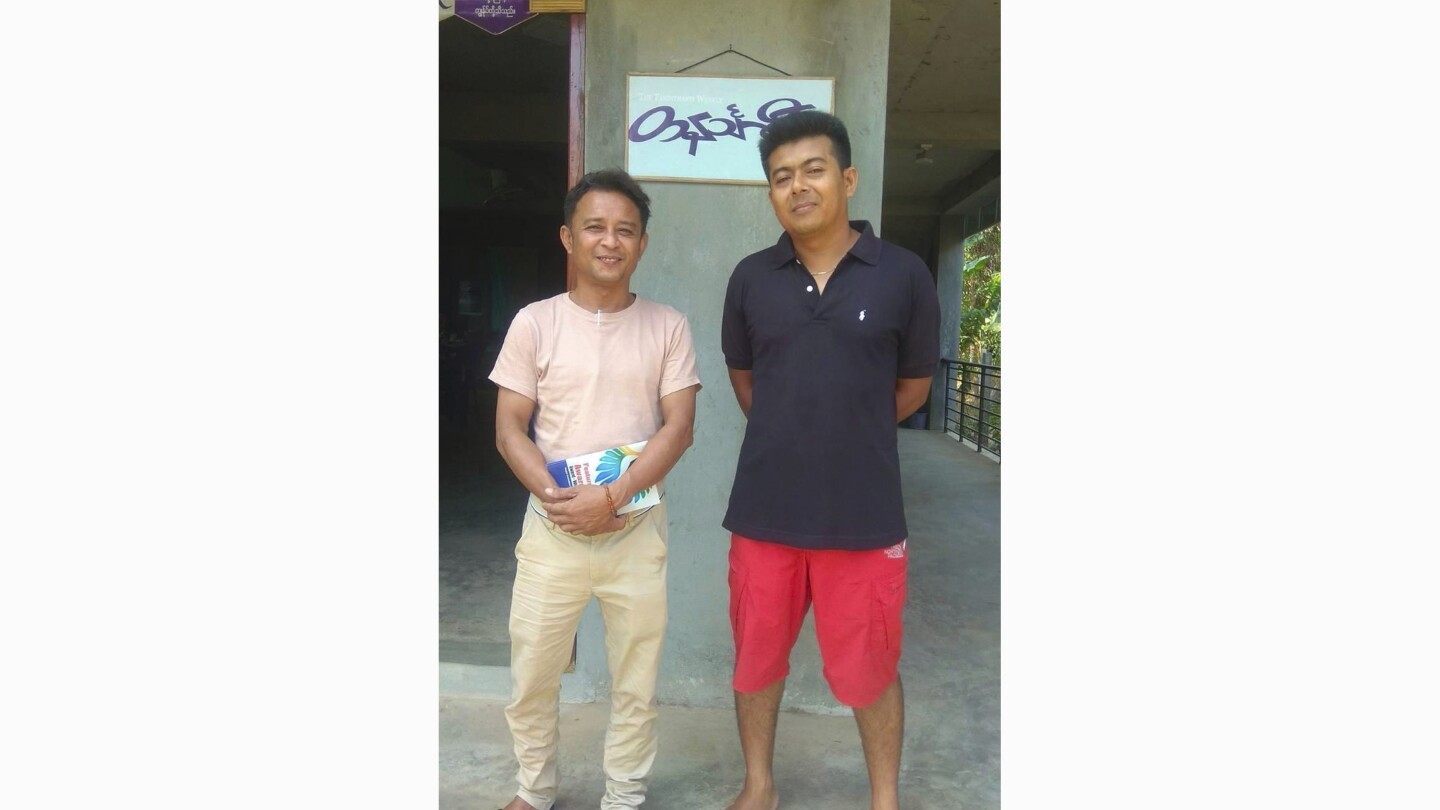BANGKOK (AP) — Myanmar’s military government has arrested two journalists with a local online news service, their editor said Wednesday, in its latest crackdown on media freedom since seizing power nearly three years ago.
The chief editor of Dawei Watch, who spoke on condition of anonymity for fear of reprisals from authorities, told The Associated Press that Aung San Oo and Myo Myint Oo were arrested late Monday at their homes in the coastal town of Myeik. The town is about 560 kilometers (350 miles) south of Yangon, the country’s biggest city.
The editor said they were arrested three days after returning home from hiding and that security forces told family members they were arrested for reports they had filed. The computers and mobile phones of the reporters and their family members were confiscated by police, and the journalists are being held in an interrogation camp, the editor said.
Dawei Watch mostly covers news in southern Myanmar.
“Journalists are writing the news reports and producing it in line with journalism ethics. Writing reports is not a crime,” the editor said. “Arresting, interrogating, and taking actions against the journalists in the same manner as done to people who committed crimes should not be allowed. So I want to say: Release the detained journalists as soon as possible.”
Dawei Watch’s chief editor said a total of five reporters and a columnist have been arrested since the army began cracking down on independent media after seizing power from the elected government of Aung San Suu Kyi in February 2021.
Myanmar is one of the world’s biggest jailers of journalists, second only to China, according to Reporters Without Borders, and it is ranked near the bottom of the watchdog group’s Press Freedom Index at 173rd out of 180 countries this year.
At least 14 media outlets have had their licenses revoked and at least 163 journalists have been arrested since the coup, with about 49 of them still detained, according to media workers in Myanmar who track the situation. More than half of those still in custody have been convicted and sentenced.
Most of the detained journalists were charged with incitement for allegedly causing fear, spreading false news or agitating against a government employee.
At least four media workers have been killed and others tortured while in detention, the researchers said.
Most media outlets, including Dawei Watch, now operate semi-clandestinely, publishing online as staff members try to avoid arrest. Others operate from exile.
Last month, the military government amended the broadcasting law to place the Television and Radio Broadcasting Council under the ruling military council’s direct control. The law previously allowed the council to operate freely without the influence of any government organization.

